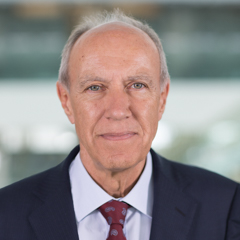Message from WIPO DG on the International Day of the World’s Indigenous Peoples (August 9, 2020).
August 7, 2020
It is with deep appreciation that I welcome the opportunity to join today in celebrating the International Day of the World’s Indigenous Peoples.

(Photo: WIPO/Berrod).
As the world comes together to face an unprecedented pandemic that has grievously affected people everywhere, including Indigenous Peoples, we are reminded of the role that traditional knowledge plays in safeguarding the health, livelihood, safety and well-being of indigenous communities.
Indigenous Peoples’ traditional knowledge is part of their core cultural identity and presents a rich foundation for continued well-being and self-determined development, particularly in times of crisis. Traditional Knowledge is the know-how, skills and practices that are developed, sustained and passed on from generation to generation within a community.
Traditional knowledge is a real asset for Indigenous Peoples, contributing to their resilience to crises and challenges. For example, traditional food-production systems may sustain self-sufficiency. Traditional community-based governance and practices reinforce much needed solidarity, while traditional livelihoods are crucial as a source of income and well-being.
The Organization’s engagement with Indigenous Peoples goes back years, I am proud to say, with a wide array of work on issues of particular interest to Indigenous Peoples.
The WIPO Intergovernmental Committee on Intellectual Property and Genetic Resources, Traditional Knowledge and Folklore (the IGC) is negotiating with the objective of finalizing an agreement on an international legal instrument(s) relating to intellectual property, which will ensure the balanced and effective protection of genetic resources, traditional knowledge and traditional cultural expressions.
Participation and expert input of Indigenous Peoples in the IGC remain a key feature of the IGC process, contributing to its credibility and substance. WIPO has taken robust measures to ensure and enhance full and effective participation of Indigenous Peoples in the IGC.
The Organization’s engagement with Indigenous Peoples and local communities (IPLCs) has grown considerably in scope during the last few years. We offer capacity-building workshops, distance learning courses that are free of charge for indigenous peoples and an Indigenous Fellowship. Since 2015, six scholarships for Indigenous Peoples have been issued in support of their participation in WIPO Summer Schools.
An important component of WIPO’s program activities relating to traditional knowledge and traditional cultural expressions aims to enable Indigenous Peoples to make best use of available intellectual property tools, if they so wish, in their businesses.
WIPO’s Project-based Training and Mentoring Program on Intellectual Property for Women Entrepreneurs launched last year aims to strengthen the capacity of women entrepreneurs from IPLCs to make strategic use of intellectual property rights and build up economic sustainability. The Organization recognizes in particular the key contribution that indigenous women play in sustaining traditional livelihoods and generating income within their communities.
During the COVID-19 pandemic, our involvement within the United Nations (UN) system and relevant mechanisms has continued, including the WIPO Secretariat’s cooperation and dialogue with the UN Permanent Forum on Indigenous Issues (the Permanent Forum), which is a key source for guiding our engagements with Indigenous Peoples.
Last year, the Permanent Forum issued two recommendations to the effect of reinforcing Indigenous Peoples’ participation in the IGC, namely to organize an Indigenous Expert Workshop during the present biennium and to commission from Indigenous expertise an updated technical review of key-issues relevant to the IGC negotiations. The WIPO Secretariat is currently following up on an IGC decision endorsing the Permanent Forum’s recommendations.
Traditional knowledge can contribute to addressing global challenges. The 2015 Paris Agreement on the implementation of the UN Framework Convention on Climate Change (UNFCCC) has recognized such contribution in its scope of action on adaptation. The WIPO Secretariat provides expertise on intellectual property issues that use and documentation of traditional knowledge may raise in the development of the UNFCCC Local Communities and Indigenous Peoples Platform.
All these efforts continue online during the pandemic.
We look forward to engaging further with Indigenous Peoples in support of their specific interests, needs and well-being.